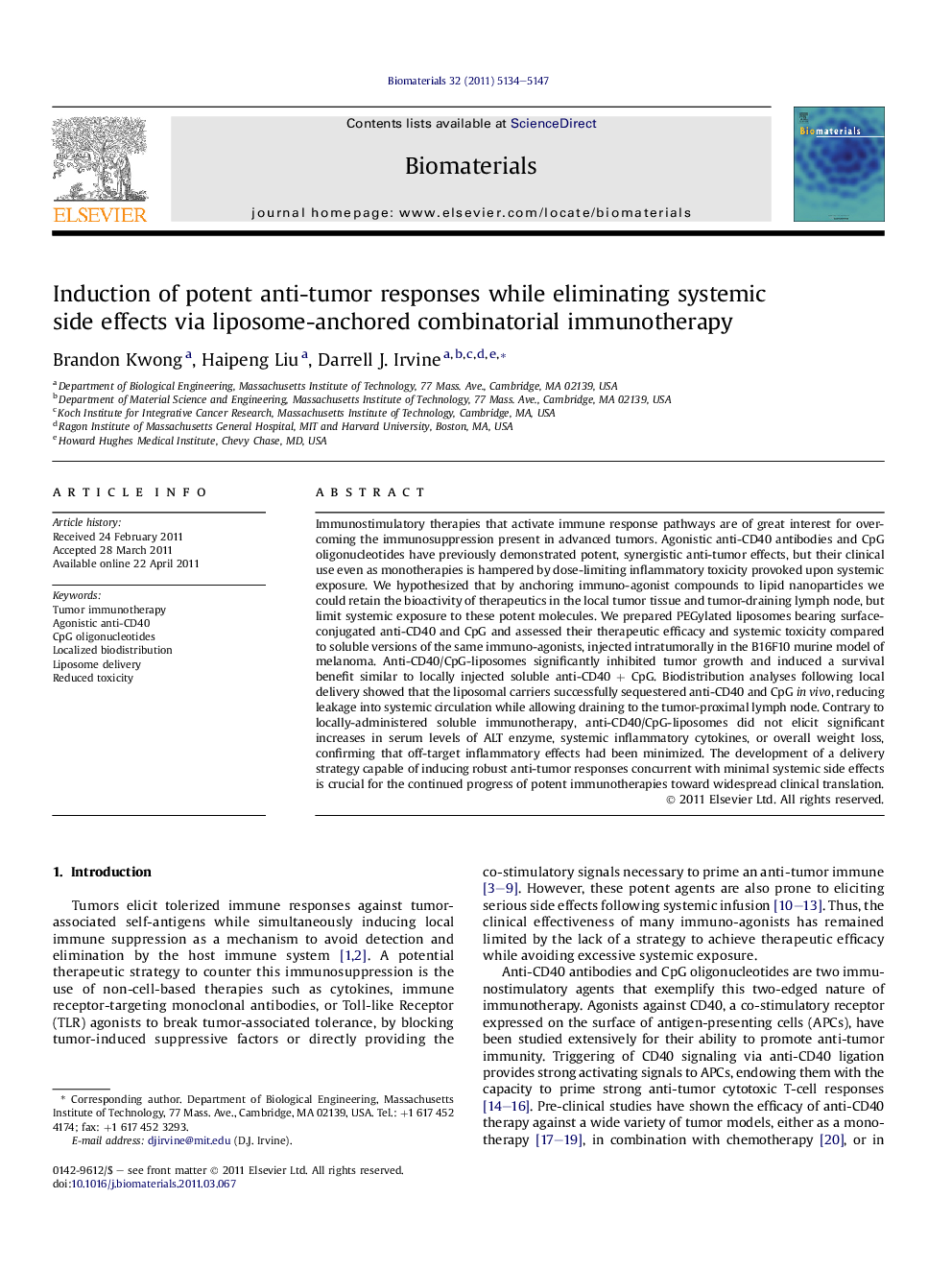| Article ID | Journal | Published Year | Pages | File Type |
|---|---|---|---|---|
| 7350 | Biomaterials | 2011 | 14 Pages |
Immunostimulatory therapies that activate immune response pathways are of great interest for overcoming the immunosuppression present in advanced tumors. Agonistic anti-CD40 antibodies and CpG oligonucleotides have previously demonstrated potent, synergistic anti-tumor effects, but their clinical use even as monotherapies is hampered by dose-limiting inflammatory toxicity provoked upon systemic exposure. We hypothesized that by anchoring immuno-agonist compounds to lipid nanoparticles we could retain the bioactivity of therapeutics in the local tumor tissue and tumor-draining lymph node, but limit systemic exposure to these potent molecules. We prepared PEGylated liposomes bearing surface-conjugated anti-CD40 and CpG and assessed their therapeutic efficacy and systemic toxicity compared to soluble versions of the same immuno-agonists, injected intratumorally in the B16F10 murine model of melanoma. Anti-CD40/CpG-liposomes significantly inhibited tumor growth and induced a survival benefit similar to locally injected soluble anti-CD40 + CpG. Biodistribution analyses following local delivery showed that the liposomal carriers successfully sequestered anti-CD40 and CpG in vivo, reducing leakage into systemic circulation while allowing draining to the tumor-proximal lymph node. Contrary to locally-administered soluble immunotherapy, anti-CD40/CpG-liposomes did not elicit significant increases in serum levels of ALT enzyme, systemic inflammatory cytokines, or overall weight loss, confirming that off-target inflammatory effects had been minimized. The development of a delivery strategy capable of inducing robust anti-tumor responses concurrent with minimal systemic side effects is crucial for the continued progress of potent immunotherapies toward widespread clinical translation.
